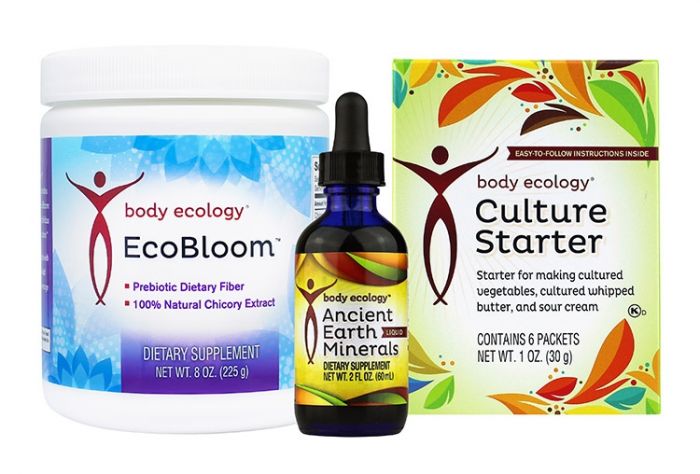Bacteria that Heals Your Gut: Relief from Inflammatory Bowel Disorders
Your gastrointestinal tract is an open door to the outside world.
We are constantly ingesting all kinds of microorganisms with our food. This could be any assortment of viruses, bacteria, or fungi. Mostly, these are harmless. A healthy person carries far more bacteria than human cells, a ratio of about ten to one.
While there are about ten trillion cells in the human body, a healthy person is also carrying around four trillion viruses. Many microorganisms live symbiotically with humans. If a microorganism is designed to host on humans, the gut has a number of defenses that protect it from pathogenic invasion.
The gut houses the largest mass of lymphoid tissue in the human body.
This mass, known as gut-associated lymphoid tissue (GALT), is the digestive tract’s immune system and sits just below the mucosal barrier of the intestines. The mucosal barrier keeps gut microflora and other contents of the intestine in place. Inflammation makes the intestinal tract permeable, and beneficial microflora actually help to repair the lining of the gut. The intestinal epithelial cells, the immune system, and beneficial microbes are all in constant dialogue with each other.
Scientists have known for some time that beneficial microbiota can help heal inflammatory bowel conditions.
Until recently, they did not know the exact mechanism. What they did know was that the small cells which line the intestine, the intestinal epithelial cells, are in extreme close quarters with beneficial bacteria. Together these form a barrier.
In the gut, this barrier protects the deep interior of the body from outside microorganisms, antigens, and even large undigested food particles. By migrating into small gaps or variances in the intestinal wall, friendly bacteria are known to repair these gaps, which form during inflammatory conditions.

Eating a regular diet of fermented veggies will provide your gut with the beneficial bacteria it needs to naturally heal inflammatory bowel disorders! And our Cultured Veggie Kit can help give you a huge boost to get things going!
Researchers at Emory University School of Medicine teamed up and discovered that Lactobacillus bacteria actually promote a biochemical response in intestinal epithelial cells. Lactobacillus is the group of bacteria most known for their role in traditional fermented food like yogurt, kefir, sauerkraut, and kimchee.
Dr. Andrew Neish, professor of pathology and laboratory medicine at Emory University, says that, “It’s been known for years that probiotic bacteria can have these kinds of helpful effects, but it wasn’t really clear how this worked. We’ve identified one example, among many, of how certain kinds of bacteria have specific biochemical functions in the body.”
What they found is that Lactobacillus microbes prompt intestinal epithelial cells to release Reactive Oxygen Species (ROS). In large quantities, ROS cause oxidative stress to the body because they are so highly reactive. However, in small amounts, such as the amount produced by intestinal epithelial cells when they come in contact with Lactobacillus rhamnosus, the ROS stimulates the formation of focal adhesions.
These focal adhesions are structures on the epithelial cells that act as anchors for their movement. They are where the cells attach to the matrix surrounding them, sort of like laying down tracks. Focal adhesions actually help to increase the motility of epithelial cells, ultimately leading to gut repair.
What researchers knew before they began the study was that immune cells respond to bacteria by generating ROS. In the recent research cited above, Niesh and his colleagues believe that ROS production signifies tissue maintenance rather than a component of defense, and that it is a marker of cohabitation and adaption. While systemic oxidative stress is linked to heart disease, stroke, and cancer, local and controlled ROS can be a way to send signals and communicate.
We suggest adding these two steps to your daily diet:
- Include fermented foods in every meal. The Veggie Starter and the Kefir Starter are great ways to create fermented foods at home.
- Beginning and ending your day with at least 3 oz. of a probiotic beverage, like Body Ecology Cocobiotic, will make a huge difference in the inner ecology of your gastrointestinal tract!
What To Remember Most About This Article:
Beneficial bacteria can help to heal inflammatory conditions in the gut. The small cells of the intestines work together with good bacteria to form a healthy gut barrier. This barrier works to keep out harmful microorganisms and even large particles of undigested food.
Scientists have researched further to find that friendly bacteria can improve the motility of intestinal cells and lead to gut repair. This is why it is so important to include fermented foods and probiotic beverages as a part of your daily diet for optimal digestive health!
REFERENCES:
P. A. Swanson, A. Kumar, S. Samarin, M. Vijay-Kumar, K. Kundu, N. Murthy, J. Hansen, A. Nusrat, A. S. Neish. Enteric commensal bacteria potentiate epithelial restitution via reactive oxygen species-mediated inactivation of focal adhesion kinase phosphatases. Proceedings of the National Academy of Sciences, 2011; DOI: 10.1073/pnas.1010042108








